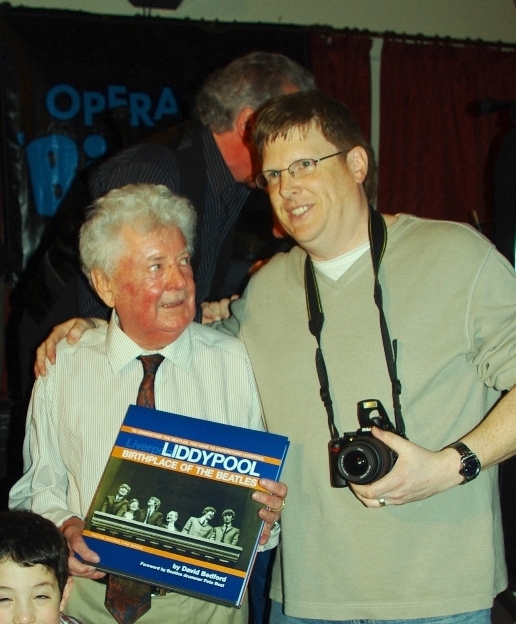
Meet Allan Williams—“The Bootle Buck” and founder of The Jacaranda Club. What hasn’t been written about Allan Williams, The Beatles’ first manager? Williams has become known by the title of his first book: The Man Who Gave The Beatles Away.
Losing The Beatles has been recorded as one of the biggest business mistakes of the 20th Century. Is Williams a fool, unlucky, or misrepresented?
In The Beatles Anthology, Paul McCartney describes Williams as “the little Welsh manager (little in height that is)”. This is important because many have tried to claim he wasn’t their manager, so Allan was pleased with this quote.
To find out more, I met Allan in The Grapes, the historic pub in Mathew Street where The Beatles used to drink. I was determined to meet the man, not the myth. His sparring with friend and Cavern DJ Bob Wooler was infamous at Beatles conventions the world over, with Bob doubting the validity of some of Allan’s stories.
The first surprising fact was that Allan was born in Bootle, North Liverpool, and not in Wales—a ‘Bootle Buck’ as he calls himself—though he did grow up in Wales and his family was Welsh.
You first made your mark on the Liverpool music scene by opening The Jacaranda Club in Slater Street. How did that come about?
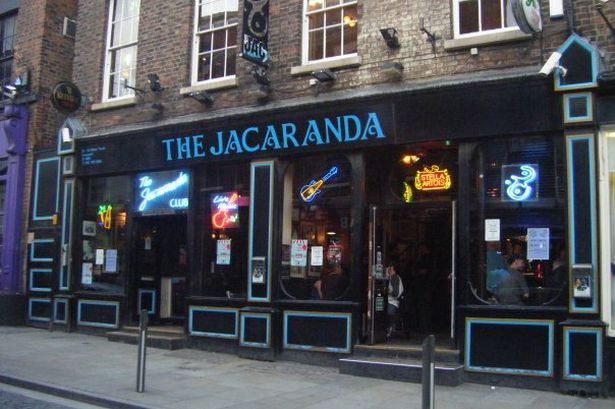
“My wife Beryl and I used to love to travel around Europe, hitch-hiking and just enjoying ourselves. We stayed in the YHA (Youth Hostel Association) in Paris, and we loved to go to the St. Michel jazz clubs (like Alan Sytner, founder of The Cavern Club did) and see these youngsters in cellar clubs having fun. It was not possible in Liverpool then, but I thought it was a great idea.
“I had been to the famous 2i’s Coffee Club in London and then others opened clubs too. So I said to Beryl, ‘let’s open one’. I was still a plumber and found an old clock repairer’s building at 23, Slater Street and we bought it and did it all up—my mates and I did all the work. It cost us £300 for the lot and we had to borrow from the bank to get it finished.
“I went to a social club in Upper Parliament Street and heard this great Caribbean Steel Band. I thought, that would be a novelty and would maybe last for a week, but they lasted ten years. Half of them left and became the first Liverpool foursome to go to Hamburg, which opened the door for all the Merseybeat bands. The rest of the steel band went to London and found some new members, came back and performed with the new line-up of the Caribbean Steel Band.
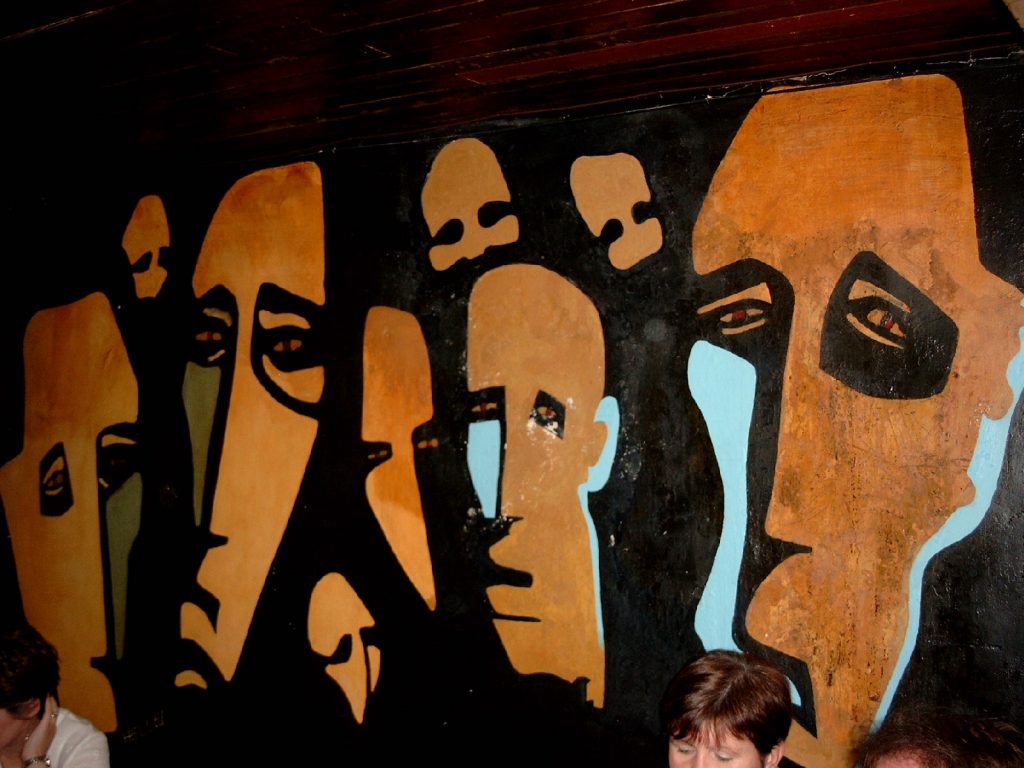
“The ‘Jac’ took off straight away. We had art students hanging out there. This was because there was an art tutor called Don McKinley who did the original paintings on walls, which in turn attracted the art students. We had to share the toilets with the sweet shop next door, which didn’t go down well, as the girls used to leave obscene scribblings on the toilet walls. I had the lads (John, Paul and George) re-decorate them, which didn’t take long. Stuart and his friend Rod Murray then painted murals on the walls in the basement, though most of that original artwork disappeared when the plaster fell off because of damp. There is only a small piece of Stuart’s artwork left.
“There were few building regulations back then. Our only fire escape was just a step ladder where the coal was thrown in, and that was mainly for the band. But then everywhere was concrete, so there was not much chance of fires breaking out.
“It’s funny. We made more money in the Jac than I did in the Angel—the Blue Angel, which Williams later opened on Seel Street—even though we didn’t sell alcohol in the Jac. We used to sell Pepsi—I was a bigger seller than Lewis’ department store in Pepsi—I didn’t have Coca-Cola as Pepsi was a penny a crate cheaper and we sold gallons of it. The delivery guy was delighted. There was nothing else to drink.
“I do remember The Beatles, though. They were all bums, especially John who was the biggest bum of them all as he only received a small amount of pocket money from Mimi”.
How did you go from managing a coffee club to being the manager of The Beatles?
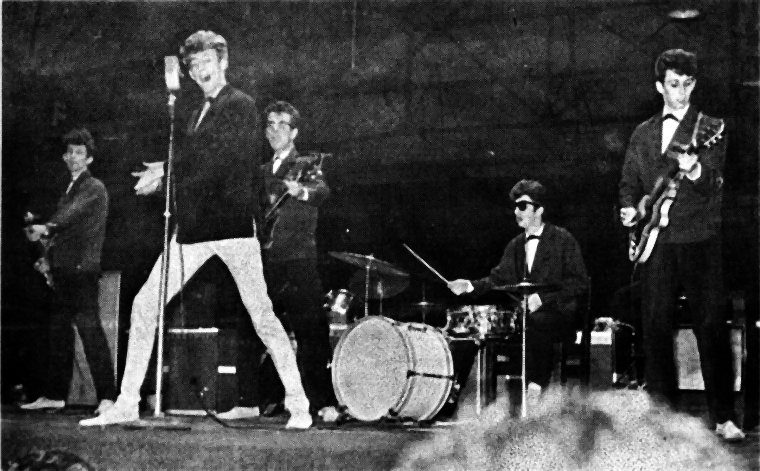
“Music Promoter Larry Parnes decided to put on a show at the Liverpool Stadium, featuring Eddie Cochran and Gene Vincent. But Eddie Cochran was killed two weeks before and so Parnes said I could cancel and get a full refund. I said, ‘It’s a bit inconvenient Eddie dying, but ask Gene Vincent if he’ll still do it’. Well, Gene said all right, as he wasn’t too seriously injured in the crash.
“As we only had half a show, I suggested putting Liverpool groups on in the first half. So we put on Gerry and The Pacemakers, Rory Storm and the Hurricanes and Cass and the Cassanovas, who were the best bands around then. John, Paul, George and Stuart went to watch, and then Stu and John came to me the next day and said, ‘When are you going to do something for us?’
“I didn’t know they had a proper band, as they only played in art school dances then. So I said, ‘What do you mean? There’s no more painting to do’. They then told me they had a group, though they had no drummer. What kind of group is that? ‘We’ve managed so far’ was their cry. Well, Cass from the Cassanovas was there and so I called him over. He asked what they called themselves and they said they were using The Beatals, and he suggested Long John and The Silver Beetles, which became The Silver Beatles—which they hated, by the way—but they kept it, as Cass gave them a drummer in Tommy Moore.
“After Tommy, they recruited a guy called Norman Chapman.”
Once they had the band together, how often did they play at the Jac?
“They used to play on Monday nights after the steel band left me in the lurch. I couldn’t believe it when they came upstairs looking for brush handles. I wondered what they were up to, as they never cleaned up. I found out that because they had no microphone stands the girlfriends were sitting on the floor, holding the brushes for mic stands”.
Before they went, did they look at other drummers or just Pete?
“They remembered Pete from The Casbah, and he was now playing on his new set of drums, which sealed it. They didn’t ask anyone else. So I acted like a manager should and said he needed an audition, so Pete came down and played a few songs but he had the job anyway. Pete learned along with them out in Hamburg”.
You were instrumental in getting the whole Hamburg scene off the ground for Liverpool groups. What happened?
“The Beatles almost didn’t go to Hamburg. Everyone wanted to go as Derry and the Seniors was doing well. The Silver Beatles was regarded as a bum group, always scrounging. I’ll give you an example. The staff at the Jac used to get a taxi home, and so these scroungers would hang around to bum a lift off the staff, which was a private taxi. They had no money. They’d only go out with girls who were local because they couldn’t afford the bus fare.
“The Silver Beatles didn’t go to Hamburg the first time, as they weren’t good enough. Promoter Larry Parnes had promised Liverpool band Derry and the Seniors a U.K. summer season at Yarmouth, and so they gave up their jobs, purchased suits, and then Parnes cancelled the tour. I was not even getting commission but they asked me for help, so I took them to the 2i’s Club in London.
“I saw Tommy the owner who put them on. After all, he was not paying them, so he had a free group. A guy came over to me and asked if I was Herr Williams. He told me someone wanted to see me. I went over and who should it be but Herr Koschmider whom I’d met in Hamburg—it was like Stanley and Livingston, the chances are a million to one of it happening. I remember him saying, “Ah, Herr Williams”. Koschmider had come to London before, looking for groups. I had told him in Hamburg that the best groups were in Liverpool—doing the bullshit job of the salesman again—and sowhen he came over he went to London, not Liverpool, and went to the ‘2i’s’.
“Tony Sheridan was the first to go over but Herr Koschmider was a difficult person to get on with—an ex-circus cripple and gay—so Tony had a row and went to play at the Top Ten for Peter Eckhorn, who was young and a bit of a swinger. He had lost his artist, so he came over to London to find someone else. He needed a translator and so he arranged for a waiter from the Act One Scene One club to interpret. He was called Herr Steiner and he impressed Herr Koschmider so much that he offered him a job in Hamburg. He came with us to Hamburg in the minibus”.
Why did you send The Silver Beatles to Hamburg and not any other band, as The Silver Beatles’ reputation wasn’t that good?
“I was their manager and so I arranged the bookings at places like The Grosvenor Ballroom in Wallasey and a place in Neston—the violence there was so bad that someone was booted to death.”
The Top Ten Club, Liverpool
While they were out there you opened the Top Ten as well as the Blue Angel in Liverpool. What happened?
“I opened the Top Ten Club and I modelled it on what I’d seen in Hamburg. I thought I’d alternate the groups like Herr Koschmider was trying to do between two clubs. I realised that the only places to play were little town halls and village halls or little clubs like The Casbah in the suburbs. I saw how it worked in Hamburg, so I knew it had to be in the city centre, not the suburbs like Bootle, Litherland and Aintree. I think I upset a lot of promoters locally who saw I was going to make money.
“The Top Ten—named after the one in Hamburg—was only open for six days and it burned down. Some have said it was for insurance, but you can’t get loss-of-profit insurance when you’ve only been open for six days. You can’t show profit and loss statements, so I only received a small payout, nowhere near enough to cover what I’d lost. Of course, Bob Wooler was going to be full time and suddenly he had no job. I don’t think he ever forgave me for that, but it wasn’t my fault”.
Giving The Beatles Away?
After The Beatles returned to Hamburg, they stopped paying you commission, didn’t they?
“When they tried to get back into Germany, they couldn’t. I had to sign a fidelity bond, as did Peter Eckhorn, to be responsible for any damage made by them or if they stole something. If they had have done anything wrong, the visa would have been cancelled again and they would have had to come home. They therefore went over legitimately. I then received this letter from Stuart saying John was refusing to pay commission. Well, I hit the roof and sent them a letter”.
This is an extract:
“May I remind you seeing that you are all appearing to get more than a little swollen-headed, that you would not even have smelled Hamburg if I had not made the contacts.”
Williams claims that under the terms of Koschmider’s contract they could “not play within thirty weeks of termination of the contract or play within twenty-five miles of the place of entertainment without his consent”. Williams then went on to threaten to have them thrown out of Hamburg within two weeks “through several legal ways and don’t you think I’m bluffing”.
“Basically, I told them The Blue Angel was singing, so I said you’ll never ever f***ing work here again”, Williams said.
At that time, you could have sued them for breach of contract but you let them go. Why didn’t you pursue them?
“I had the Top Ten disaster and then I was opening the Blue Angel, so I was busy, which is why I had to let The Beatles go. I had the Blue Angel half-built when I ran out of money, so I was trying to get some money and had to go to the bank for a loan. In the end, Cain’s Brewery backed me and I opened it: a club that could sell alcohol. I’d spent enough money on them and they threw it in my face, so I thought, fine, go and do your own thing because I have my own business to build here”.
The Blue Angel was a great success, wasn’t it, and you eventually made up with The Beatles?
“Yes, we eventually made it up as I cut off their social life because the Blue Angel had become the place to be, instead of The Cavern and the Jac. We had a licensed club and cabaret, plus alcohol. All the stars of stage and screen that played at the Empire came to the Angel, like Judy Garland and the Rolling Stones. It was the show business club; we didn’t have many ‘normal’ clients. I barred The Beatles from the Angel and Epstein came begging and asked if they could come back. So I said, ‘Come back tomorrow night’ and he said, ‘They’re outside’. In they came like drowned rats and threw their arms around me. All was forgotten because life’s too short.
“I was enjoying the Angel. I remember we got everyone to sign the grand piano lid. The piano was no longer any use, so I had the lid taken off and had it painted white. I put it on the wall and all the artists signed it, until idiots started signing it ‘Joe Bloggs’. I took it down and put it in the attic. It was signed by Judy Garland and the Rolling Stones and all the showbiz people. A guy was doing some jobs for me and we needed a cupboard to keep the brushes and the mops in. The guy needed a door, so he told me he’d taken that old bit of white wood from the attic and cut it to size for the door. And that was that—it was Lord Woodbine but he blamed the joiner”.
What about Pete Best and Ringo?
“There wouldn’t have been The Beatles without Pete”.
That’s a big statement to make. Why do you say that?
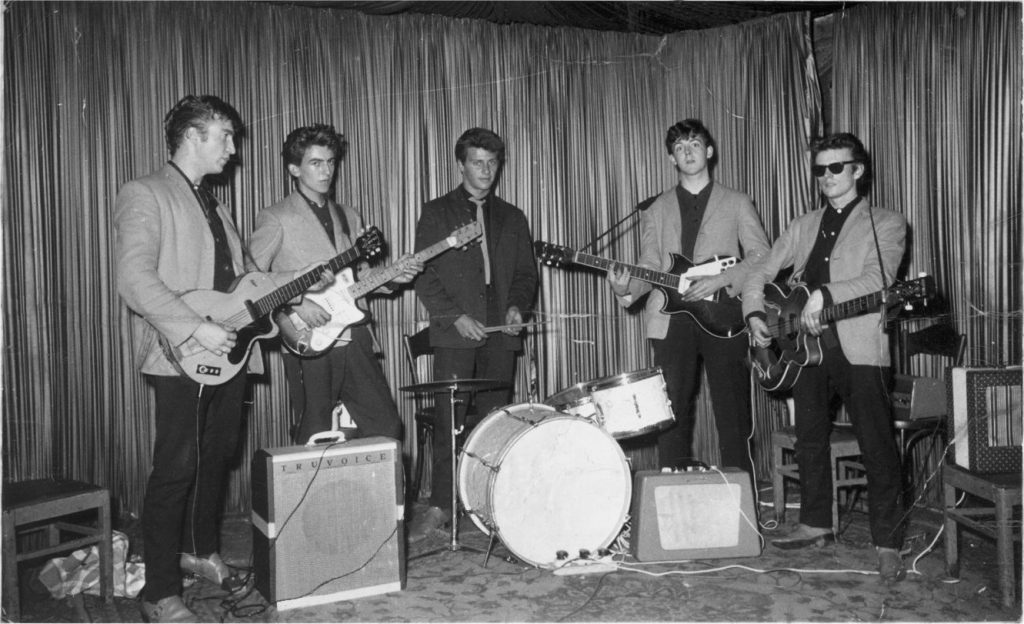
“There wouldn’t have been The Beatles, as there wouldn’t have been Hamburg without a drummer. I couldn’t work it out. If he had been a bad drummer I could have understood, but he was with them six and seven hours a night, seven nights a week in Hamburg. It was as if they smelt the whiff of success and they didn’t want him on the trip with them.
“And then of course they knew that Ringo and George got on very well together. I used to think Pete was too good looking, and as for not getting his haircut, that was just nonsense. I just think socially he didn’t fit in, and as they had to live in each other’s pockets, maybe they thought with Ringo they could have a better time. I know that Johnny Hutch said, ‘I’m not working with those maniacs’ and he still says that today; he still hates them. He was a no-nonsense guy and rough and if Lennon had tried it on with him he’d have received a broken nose.
“Now they’re talking about making a statue in Hamburg with John, Paul, George and Ringo, with Stuart looking on. They can’t include Stuart and not Pete. Stuart was only there in sufferance before giving it up for his art. It was Hamburg that kicked them off, yet commercially people wouldn’t even know who Pete was. Epstein didn’t want people to know that Pete and Stuart existed in The Beatles before he found them”.
Memories
You’ve had an amazing life. Do you have any regrets?
“I did all the hard work in the early days, giving them work and getting them set up in Hamburg. There was always someone like me in the early days working for them, but they’re ruthless. All groups are users, it’s their living: everyone else is expendable. At the end, even Epstein was expendable. I remember he was in the studio with them and he suggested something and Lennon told him to go and count the f***ing money. When I heard that through the grapevine I thought, you’re dead, they’re going to get rid of you. His life had gone. His death was an accidental overdose but the rot had set in by then.
“I’m one of the last ones of those who were there. I’ve lost lots of friends and I miss them all. People say, ‘You could have been a millionaire’ and I say, ‘I was a millionaire’. A millionaire couldn’t have managed The Beatles in the early days. We were breaking the rules left right and centre”.
Allan is a survivor, a millionaire in memories that money can’t buy. As with many in the story of The Beatles, he was discarded along the way once he had served his usefulness. But he just dusted himself down and got on with life, a life he is enjoying to this day.
Hello, Goodbye
I went to visit Allan just a few weeks before he died. He was on good form and we talked and laughed. I said something to him and I am so glad I did, because it was the last time I saw him. I said to him; “You do realise, Allan, that without you, there probably wouldn’t have been The Beatles.” He thought for a moment, then replied; “I hadn’t thought of it like that.”
Portrayed as ‘The Fool on the Hill’, he is sometimes overlooked because of this tag. In truth, he couldn’t have done for The Beatles what Epstein did—he admits that.
But without his input, they wouldn’t have made it to Hamburg, which was what made them the greatest band ever. For that we should be thankful.
David Bedford
Excerpt taken from “Liddypool: Birthplace of The Beatles” by David Bedford
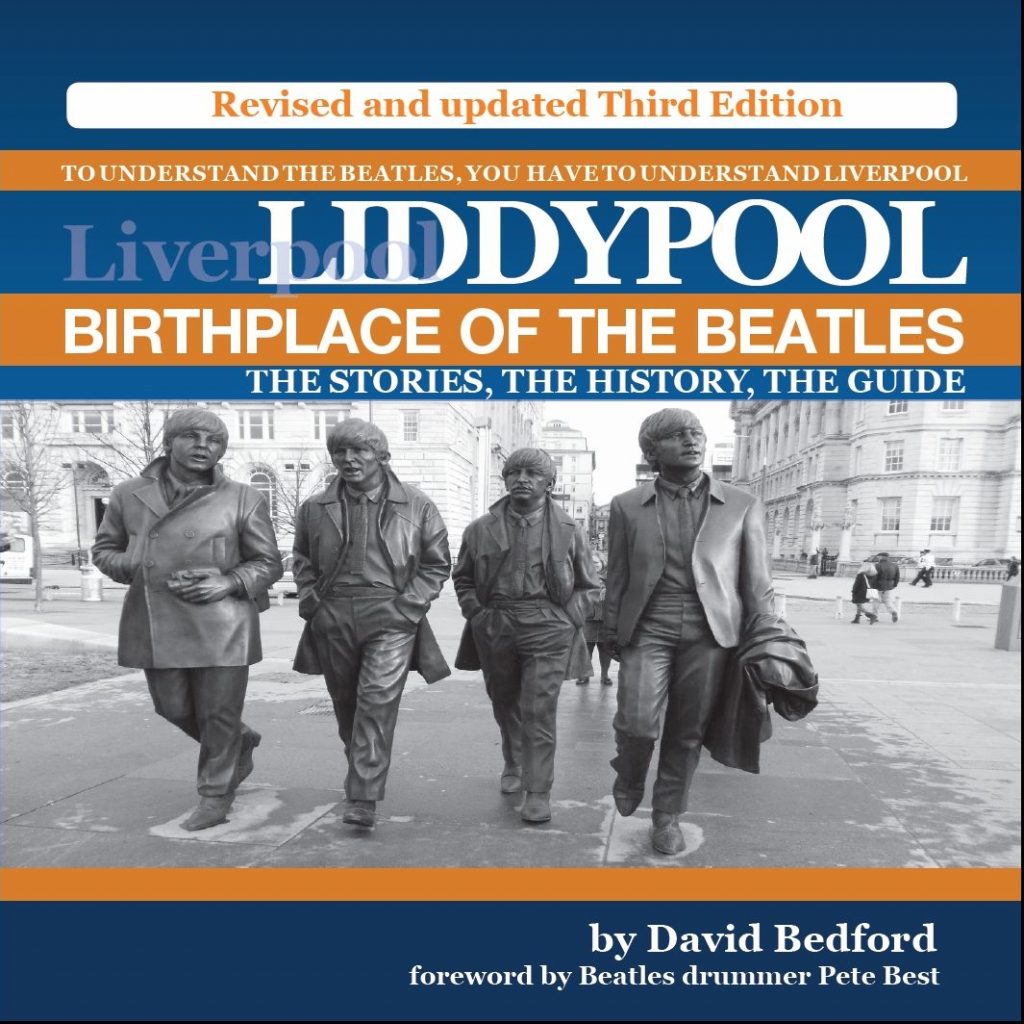


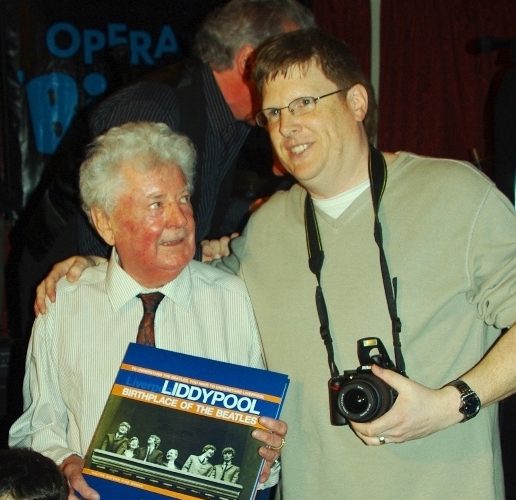
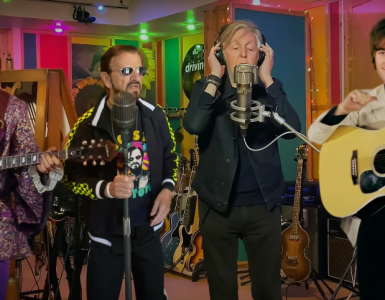
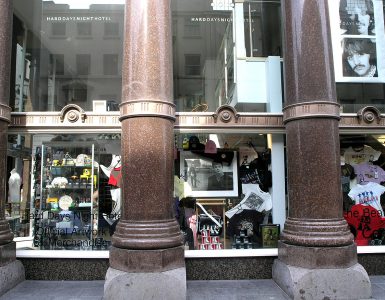
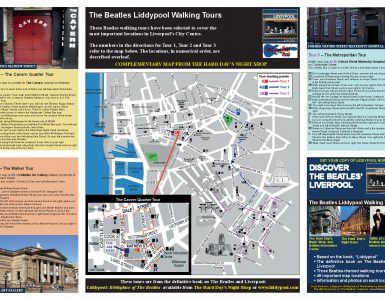
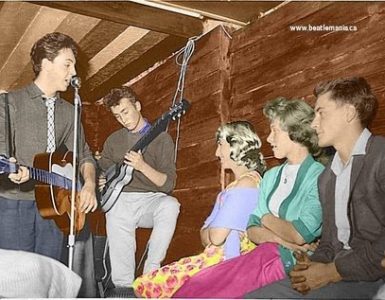









Add comment